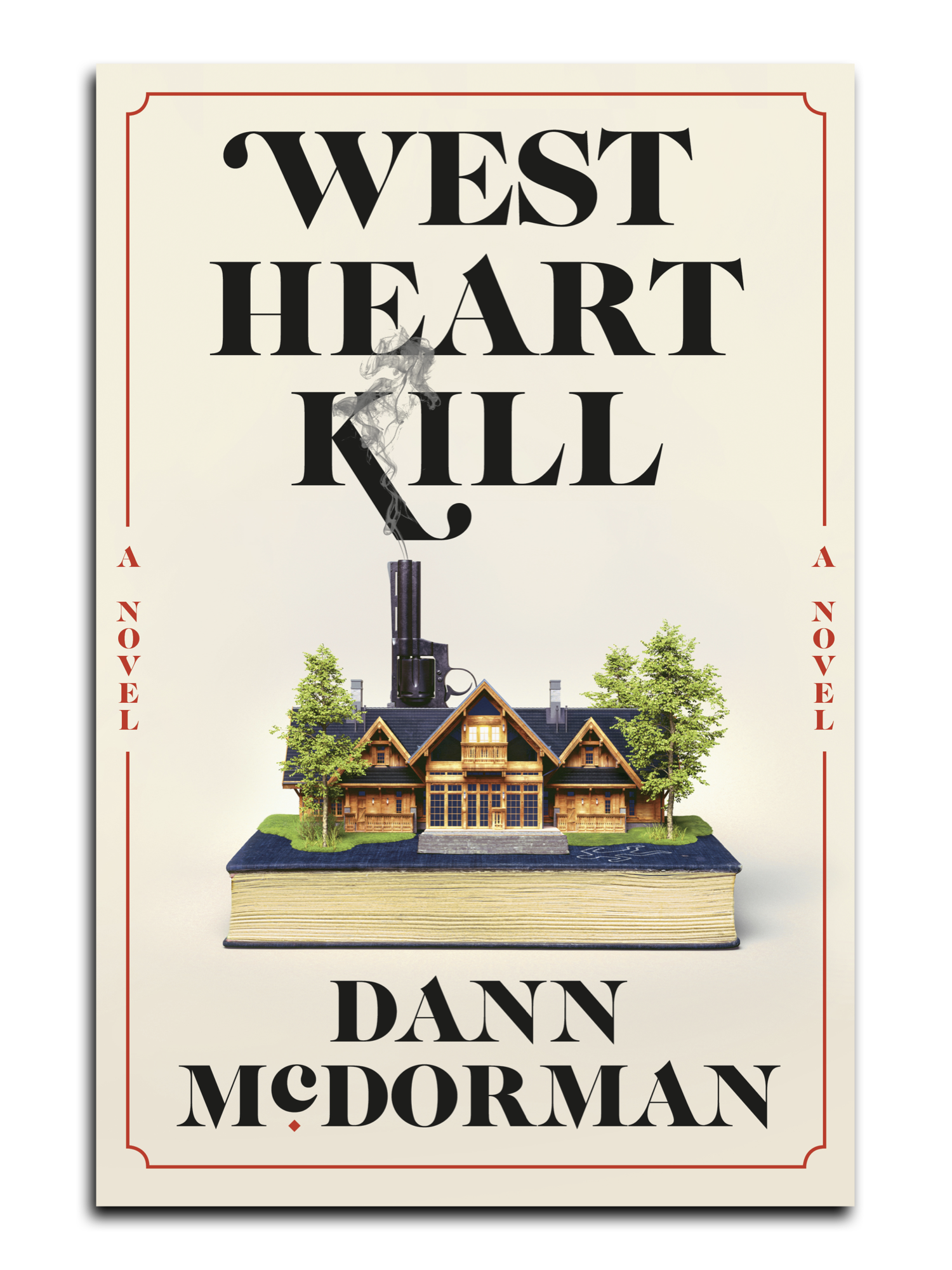West Heart Kill by Dann McDorman
At an isolated hunting club, West Heart, during a stormy Bicentennial weekend, three bodies are found within four days. Private detective Adam McAnnis, visiting with an old college friend, encounters the gathering group of unfamiliar and somewhat unfriendly faces. As the first member's body is discovered by the lake, a major storm strikes. When the power returns on Sunday, two more deaths have occurred.
McDorman indeed deals out an unconventional murder mystery. Setting this at a remote and isolated location, convening a large group where everyone is a potential suspect — even the unpredictable detective on the case, is only part of the callbacks to classic mysteries that have come before. A debut that works in multiple genre conventions and tropes, McDorman walks a fine line between excessive pretentiousness and creative craftsmanship.
West Heart Kill is purposefully sensationalized at times, not unlike a soap opera mixed with a classic mystery. While he begins the story with third-person narration, with a playfully pointed tone, McDorman quickly slips into second-person, addressing the reader, where he delves into the most meta writing. A veritable checklist of what makes a book meta, McDorman runs the full gamut of defining and underscoring this writing strategy. West Heart Kill refers to itself as a book quite often and pervasively, and while none of the characters refer to knowledge of the book, the use of second-person (which begins with addressing the reader and blooms bigger from there), sets up the level of self-awareness that this book knows it's a book. Additionally, and the main ways in which it can be ascribed as meta, is the continued commentary on its own form as a mystery novel. And here is where I have my main beef with West Heart Kill.
When we're in the middle of the third-person narration and McAnnis is doing his detective thing, it's good. Really good. But the meta commentary goes a bit far. I love all the interruptions and casual bantering-esque tone that sports a full awareness of the tropes, highs and lows, of the mystery genre. However, the presumption levels took off and skyrocketed with his willingness to sacrifice the plots, twists, and methodologies of novels that DEFINE this genre. Assuming everyone has a modicum of awareness of Shakespeare is one thing, because outside of high school where many of us first experienced his works, not many readers sit down to dig into a Shakespearean play. But spoiling the stories — in a variety of ways and within a range of degrees — is nigh on unforgivable to me. Many Agatha Christie books (the Poirot series, in particular) were sacrificed in the concocting of this book. Raymond Chandler, Graham Greene, Patricia Highsmith were among the others (the list was long) also used and discarded.
If I'm being generous, it's as if he simply took a "cite your sources and examples" command a little too seriously and way too far. This is not the first work of fiction to do this, and it surely will not be the last, but I don't know how to break it to these authors, editors, and publishers, but there are approximately 10,000 babies born per day in the United States who come into this world with zero knowledge (full stop could be inserted here, but...) of Christie's oeuvre, and who may want to, at some point in the future, experience any given novel for themselves. Feel free to insert any author / filmmaker in place of Christie's name, INCLUDING Mr. McDorman and his novel here.
Because, speaking of, his reveal and twist is tempting to call out, but I'll simply say that I wasn't a fan and leave it at that.
Near the 80% mark, McDorman throws a curveball and slips in a dramatized structure complete with stage direction, parentheticals, dialogue, and technical notes. He's left the world of the third-person narration behind, and while he still returns to the moments of dissecting the genre and addressing the reader (though at this juncture he's switched to a first-person plural "we"), it is back to a script when he returns to the players. It's jarring at first, but it totally works...although it starts allowing that creeping suspicion that only grows with where he's going to end his novel, which is where he simply took his conceit too far.
One of those novels that infuriated me at the same time that I can recognize a large part of the writing, structure, and character development was above average, the wasteful discard of classic mysteries and the final reveal put me off, almost entirely.
I received this book for free from the publisher via NetGalley in exchange for an honest review. This affected neither my opinion of the book nor the content of my review.

